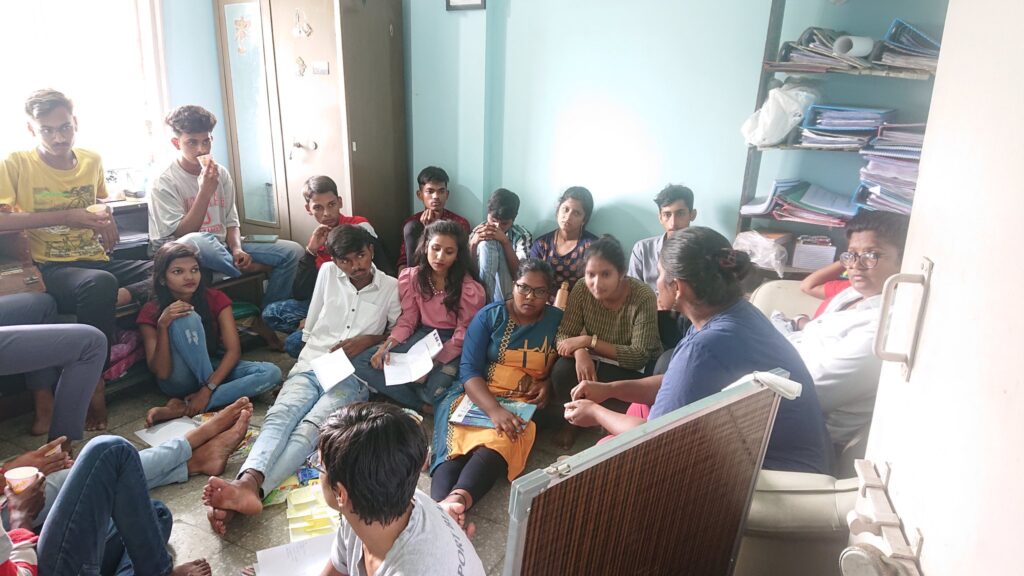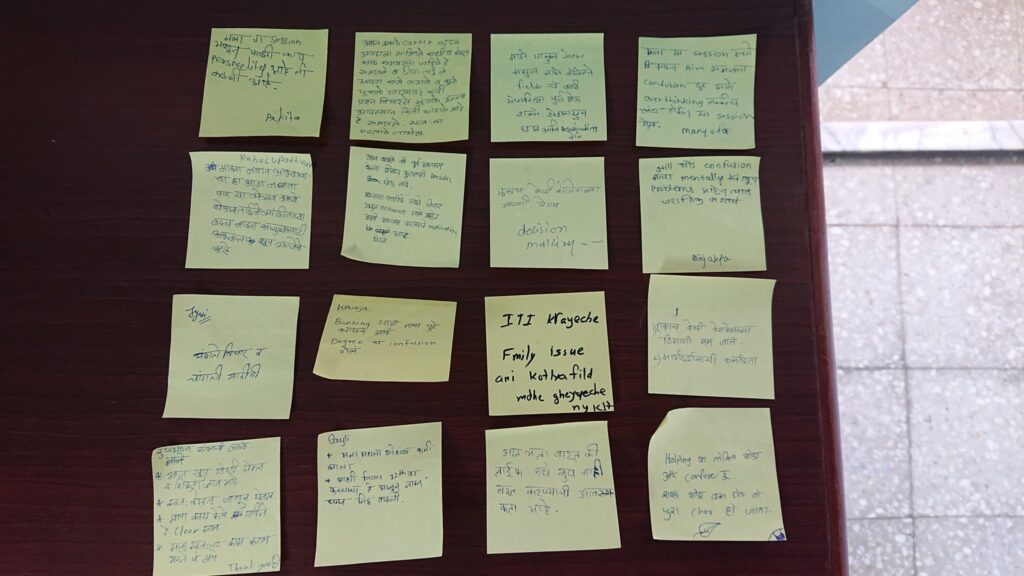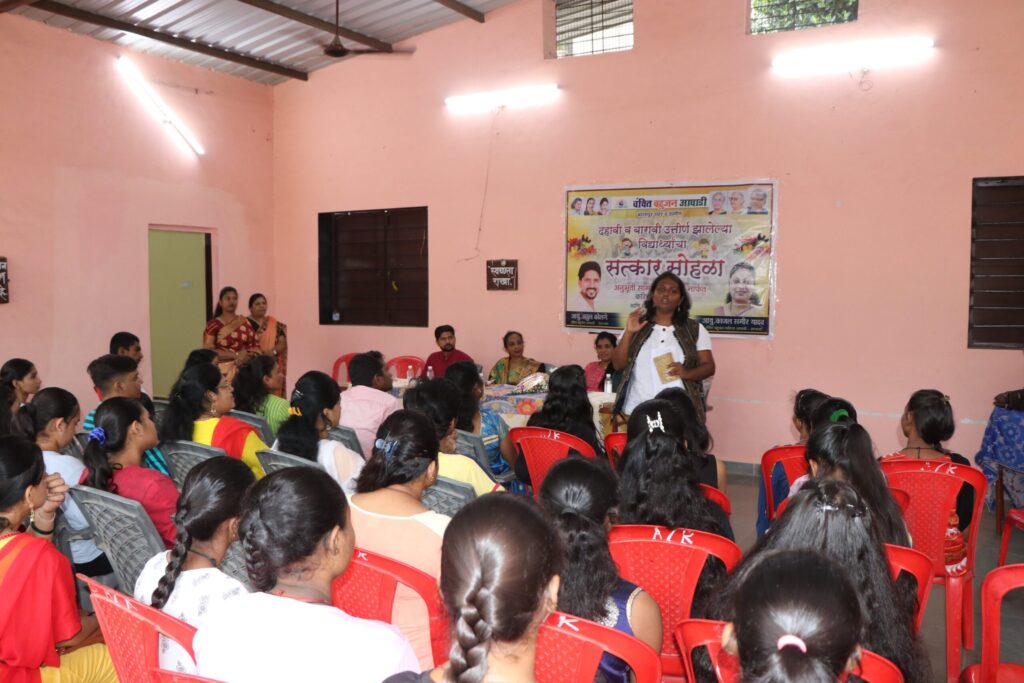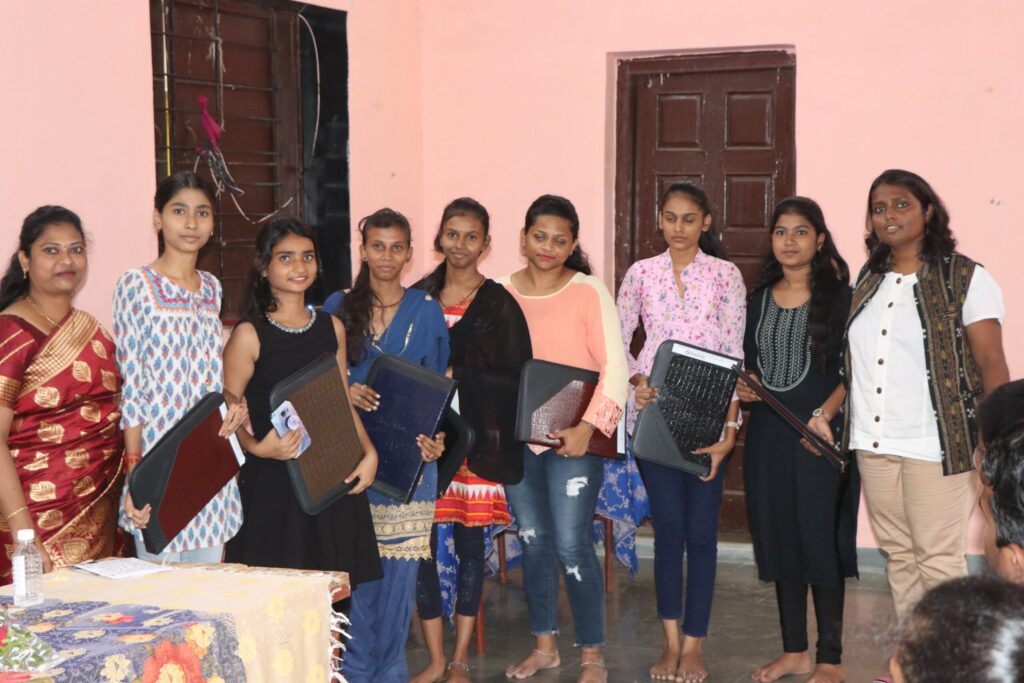Since the beginning of June, we are running “Career Counseling with Mental Justice” program – group counselling, one-to-one guidance, online admissions support, family counseling, information about various courses and scholarships according to each youth’s interest, aptitude, and needs. Most importantly, this is with the understanding that youth’s education prospects are not an individual matter but closely impacted by social, political, administrative decisions, and the way that the education system is hierarchical and discriminative towards the vulnerable.

Maximum of our youth face intersectional difficulties – firstly they are from historically deprived groups such as NT-DNT, Adivasi, minority religions, oppressed castes, rural and urban poor. Among them, some are the main or important bread winner of the family despite their young age. Some are children of, or themselves single women. Some don’t live with family and are quite alone. Some are survivors of violence and of mental health issues. All of them face varying levels of low social confidence because of their situation.



While they have grown up trying to protect their aspirations despite all odds – with each passing year, and especially now after COVID – they are beginning to compromise on their dreams which is very demoralizing mentally. Secondly, their aspirations themselves are formed in a confusing mix of peer pressure, unrealistic dreams shown by capitalist markets, knowledge about their own financial difficulties, family responsibilities, guilt at having dreams when their own parents sacrificed their own to try and give a decent life to their children and many other oppressive thoughts. It is very important that each youth is seen and heard as individuals with these differing realities, and guided accordingly. This is a long process with multiple group counseling, phone calls, guidance and encouragement. This also involves long-term practices such as taking our youth along as volunteers when collaborating with educational institutions so that they are able to visit such places which they don’t in their regular lives, and build their confidence as well as cultural capital regarding such places. This is quite political – seeing that centres of education are not easily accessed by Bahujan youth while privileged youth have easy access as children of the teachers and principals.
About 70 youth from different locations are thus being regularly helped with counselling, online admissions, choice of colleges, etc.
